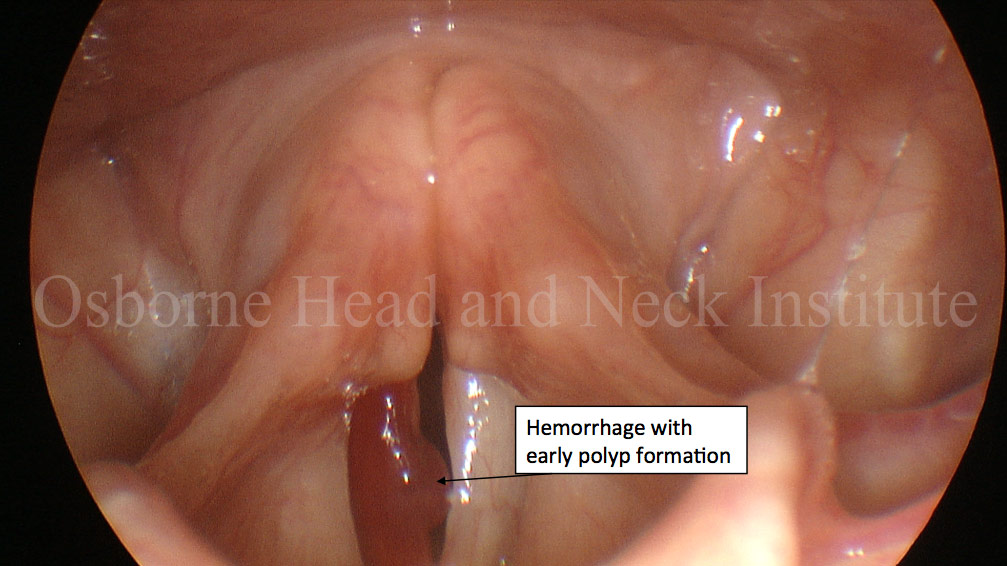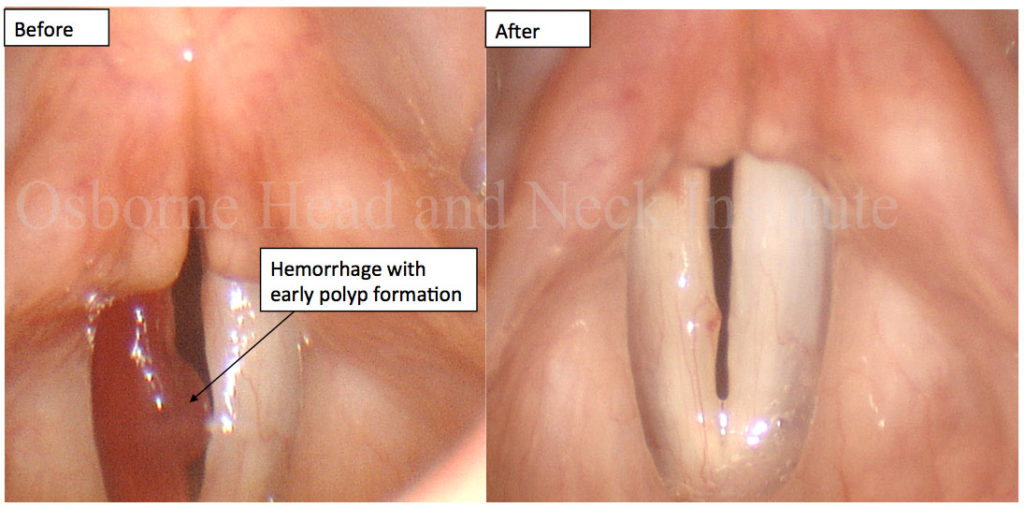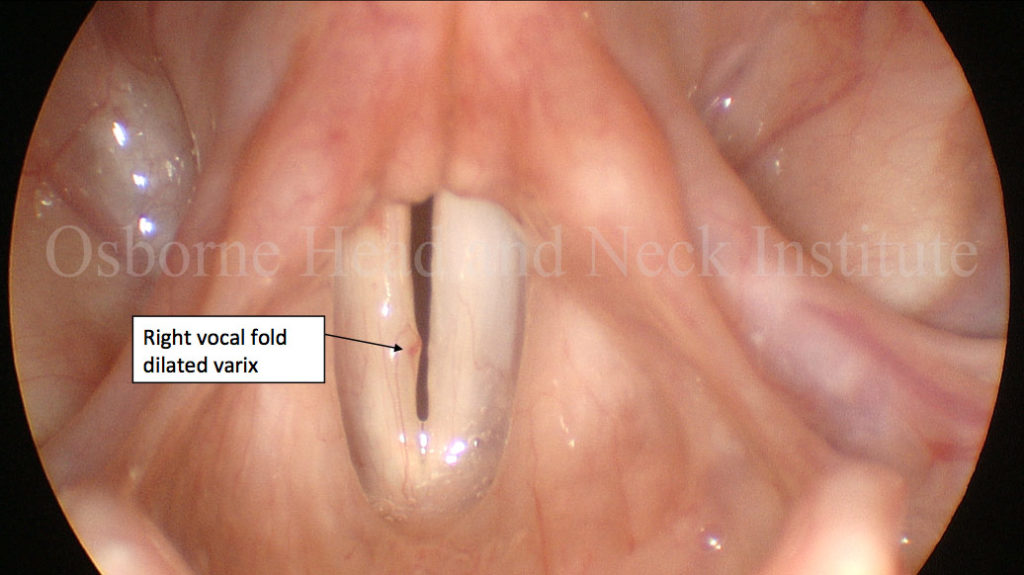- Question: How do the ingredients in e-cigarettes and vaporizers affect respiratory health? - August 16, 2019
- Bad Technique and Vocal Injury - January 9, 2019
- Is Edible Marijuana Dangerous for the Voice? Myths Dispelled - December 18, 2018
- Surprise! You have a hemorrhage - January 31, 2018
- Graves’ Disease: Treatment Overview - September 25, 2017
- Adele and the Stigma of Vocal Injury - July 11, 2017
- Vocal Curbside Consult: How does the thyroid affect the voice? - May 16, 2017
- Vocal Curbside Consult: How do hormones affect the voice? - May 3, 2017
- Vocal Curbside Consult: How do emotion and stress affect the voice? - April 17, 2017
- Vocal Curbside Consult: Vocal Recovery After Illness - April 7, 2017
An earlier Voice Case of the Week described a severe vocal hemorrhage, which occurred after a patient choked and coughed while eating.

The follow up to this included a discussion of the consequences of hemorrhages. Small hemorrhages (or bruising) of the vocal fold will lead to injuries if they are not identified.
The case included the following points:
- A diagnosis of severe right vocal fold hemorrhage was made
- In the day since onset of her symptoms, by pushing through this hemorrhage to speak she has started to form a polyp on the right vocal fold
- Treatment has been implemented and follow up will determine if the polyp persists.
This article is a follow up from the severe hemorrhage. It highlights the importance of close follow-up, accurate diagnosis and management, and not simply using steroids when you are hoarse. Had this patient used the steroid treatment that their prior doctor had advised without an examination, permanent injury would have been inevitable. Ignoring hoarseness, as she was inclined to do, would have resulted in a polyp forming, thereby necessitating vocal surgery. It is easy to see where the polyp was starting to form.

After 3 weeks of management and treatment, she is left with a dilated blood vessel, which is what likely ruptured to cause her hemorrhage. There is mild fullness on the edge of the vocal cord but she is not symptomatic from this. Ongoing vocal therapy has resulted in resolution of voice symptoms.

Early treatment of susceptible blood vessels can prevent small and large hemorrhages, thereby preventing long term injuries. The recommendation at this point is to laser treat this vessel, to prevent it from hemorrhaging again. The time she lost to performing from this hemorrhage makes this the most reasonable strategy. Singers find that this preventative measure saves them the stress of wondering if they will hemorrhage again and the accompanying need to miss and cancel performances. It is a safe procedure with significant long term gain, but should only be undertaken by a laryngologist with experience in laryngeal laser surgery. Rehabilitation after surgery includes working with a skilled vocal therapist to optimize healing and ensure there are no behaviors that will precipitate recurrent vessel formation.
For more information about the voice or Dr. Reena Gupta, visit: http://www.voicedoctorla.com/



